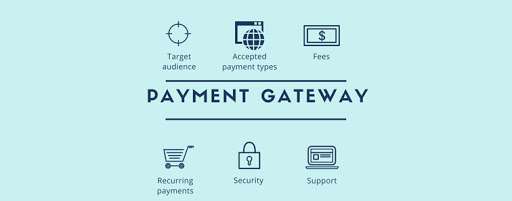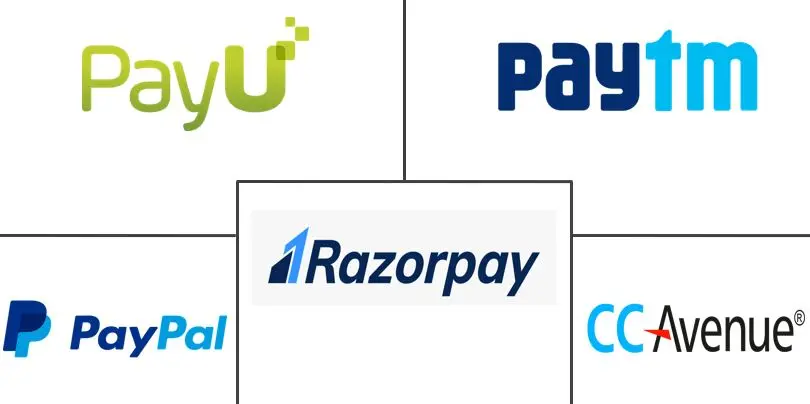AUTHOR : HANIYA SMITH
DATE : 13/10/2023
In the fast-growing digital economy of India, online payments have become an essential part of businesses and consumers alike. The use of payment gateways[1] is pivotal in enabling smooth and secure online transactions. However, one common concern among business owners and online merchants is the payment gateway charges in India.[2] Understanding these charges, their structure, and the factors that influence them is crucial for businesses to manage their costs effectively. In this article, we will break down the different types of payment gateway charges in India, factors that affect them, and provide clarity through FAQs.
What is a Payment Gateway?

A payment gateway is a technology used by merchants to accept debit/credit card payments, net banking, and digital wallets for online transactions. It serves as a bridge between the customer and the merchant’s bank, ensuring that the payment[3] is securely processed and authorized.
In India, payment gateways[4] have become essential for businesses to offer seamless online transactions. However, with the convenience comes a price—payment gateway charges in India vary depending on several factors like the payment method[5], transaction volume, and type of business. Let’s explore these charges in detail.
Key Functions of a Payment Gateway:
- Authorization: It verifies whether a customer has sufficient funds to complete the transaction.
- Settlement: Once authorized, the payment gateway settles the funds into the merchant’s account.
- Security: The payment gateway encrypts payment information, ensuring secure transactions.
- Compliance: It adheres to standards like PCI-DSS (Payment Card Industry Data Security Standard) to protect cardholder data.
Understanding Payment Gateway Charges
Setup Fee
When integrating a payment gateway into your website, certain providers may impose a one-time setup fee to cover initial configuration and activation costs. This fee covers the initial configuration and also activation of the service.
Transaction Fees
Transaction fees are costs incurred for every successful payment processed through the gateway, typically calculated as a percentage of the transaction amount. Usually, these charges equate to a portion of the total transaction value.
Annual Maintenance Fee
Some payment gateway providers require an annual maintenance fee to cover the cost of keeping your payment system up and also running smoothly.
Currency Conversion Charges
For businesses operating globally, extra fees may apply for currency conversion when handling transactions in foreign currencies.
Chargeback Fees
A chargeback occurs when a customer disputes a transaction, and in these instances, the payment gateway may impose a fee for handling the resolution process.
Withdrawal Fees
Accessing the funds gathered through the payment gateway may involve withdrawal fees, particularly when transferring the money to your bank account.
Cross-Border Transaction Fees
Businesses handling cross-border transactions may face extra fees, reflecting the complexities involved in processing international payments.
Factors Influencing Payment Gateway Charges in India

Type of Business
Different types of businesses may face different charges. For example, businesses in high-risk industries (like gambling, adult content, or pharmaceuticals) may face higher fees due to the higher risk of fraud and chargebacks.
Transaction Volume
Merchants with high transaction volumes often get discounted rates. This is because payment gateway providers incentivize high-volume businesses by offering lower transaction fees. Businesses with lower volumes may have to pay higher fees.
Payment Methods Accepted
The types of payments you accept through the gateway—whether it’s credit cards, debit cards, UPI, or wallets—can affect the charges. Some payment methods have lower processing fees than others.
Gateway Provider
Different payment gateway providers have different fee structures. Leading providers in India, such as Razorpay, PayU, Instamojo, and CCAvenue, offer competitive pricing, but it’s essential to compare their charges and service offerings to find the best fit for your business.
Service Level Agreements (SLAs)
Service-level agreements, which include uptime guarantees, transaction speed, and customer support quality, can influence the charges. Premium services often come at a higher cost.
Common Payment Gateway Providers in India

PayPal
PayPal is a globally recognized payment gateway known for its ease of use and also international capabilities. It’s an excellent choice for businesses operating on a global scale.
Razorpay
Razorpay is an Indian payment gateway that provides a diverse array of payment options, including credit/debit cards, UPI, and other digital payment methods. It’s popular among startups and small businesses.
CCAvenue
CCAvenue, one of India’s most established payment gateways, offers a comprehensive range of payment solutions, making it ideal for businesses of any scale.
Instamojo
Instamojo is an intuitive payment gateway tailored to meet the needs of small and medium-sized businesses, offering easy integration and management. It allows for quick setup and integration.
PayU
PayU is known for its robust security features and is widely used in India. It is well-suited for handling both domestic and international transactions with ease.
Conclusion
The payment gateway charges in India are an important consideration for any business that accepts online payments. These charges can vary significantly depending on the payment gateway provider, the payment methods, and the volume of transactions. By understanding the different types of charges, the factors that influence them, and how to minimize them, you can better manage your business’s costs and improve profitability. Always ensure that you compare different payment gateways to find the one that best suits your needs and budget.
FAQs
1. What are the common payment gateway charges in India?
Payment gateway charges in India typically range from 1.5% to 3% per transaction, depending on the payment method and the gateway provider. Additional fees for setup, maintenance, and international transactions may also apply.
2. Can I negotiate payment gateway fees?
Yes, many payment gateway providers offer discounts for businesses with high transaction volumes. It’s advisable to contact the service provider directly to negotiate better rates.
3. What is the cheapest payment gateway in India?
The cheapest payment gateway in India depends on your business model and transaction volume. Payment gateways like Instamojo and Razorpay are often considered cost-effective for small businesses, with transaction fees starting around 1.9%.
4. Do payment gateways charge for refunds?
Yes, most payment gateways charge a fee for processing refunds. The refund fee is typically lower than the original transaction fee but can vary depending on the provider.
5. What factors affect payment gateway charges?
Factors such as transaction volume, payment methods, business type, and service level agreements can influence the payment gateway charges in India.
Get In Touch





